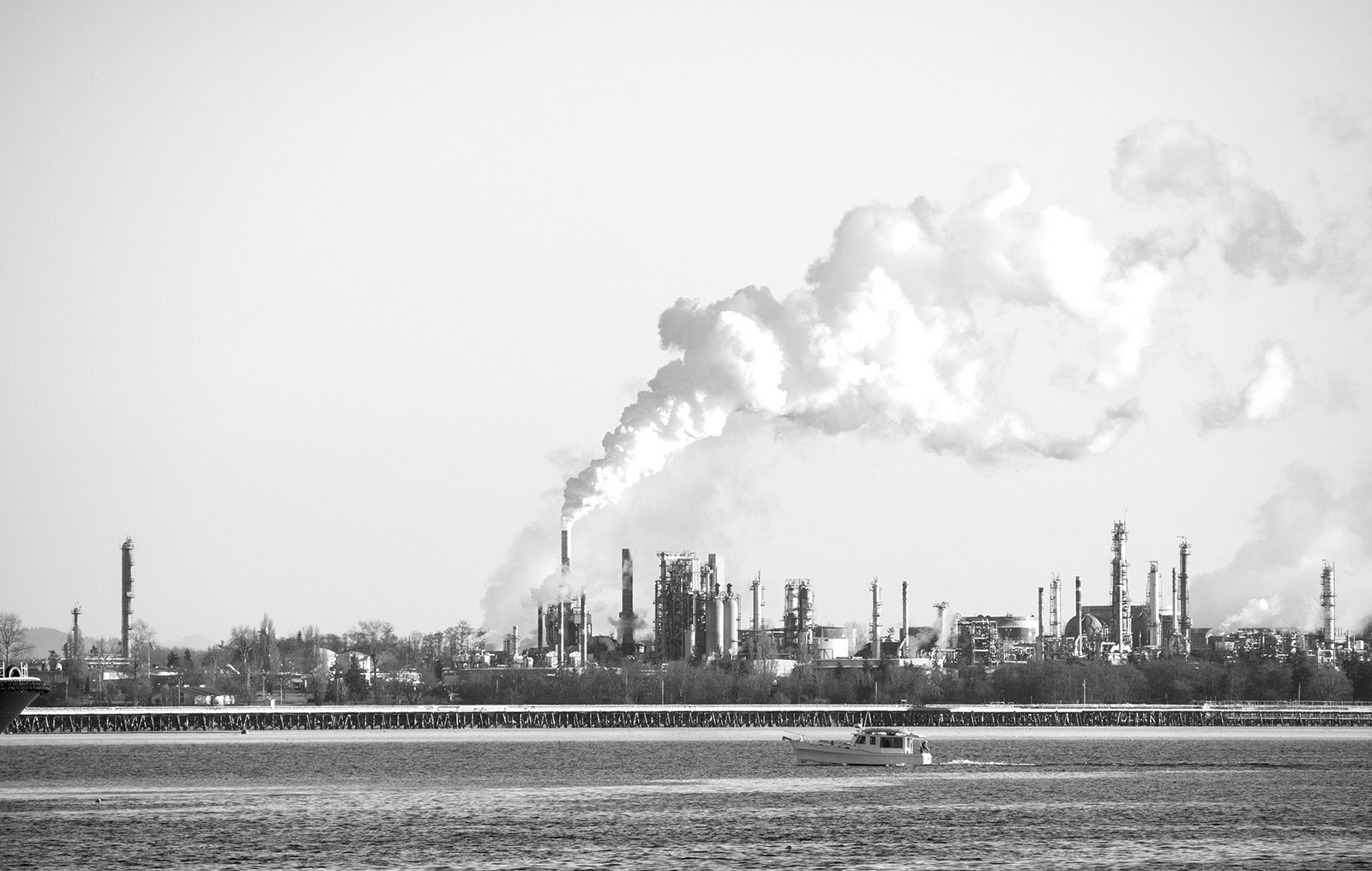Northwest petrochemical projects have hit stumbling blocks across the region, but a big one on the north Puget Sound is still moving forward, and time is running out to stop it. Andeavor (formerly Tesoro) plans to expand its Anacortes oil refinery to add a petrochemical production facility to serve export markets. It’s a project that could pose serious risks for the Salish Sea, but the public has a limited opportunity to weigh in with written comments—from right now until November 1 at 4:30 pm.
A lesser-known liquid petrochemical, xylene, is the principal chemical precursor in the production of polyethylene terephthalate (PET), which is used for making plastic bottles, polyester fibers, food packaging, paint, rubber, solvents, and other products. It is created from a partially refined crude oil product called reformate that is often produced from light oil, such as Bakken shale oil, which yields particularly high levels of petroleum naphtha. The Anacortes facility would be capable of producing 15,000 barrels of xylene per day for export, primarily to Asia, representing roughly a 9 percent increase in total US xylene production.
Xylene is dangerous to public health. Short-term exposure to xylene is known to cause difficulty breathing, impaired memory, and delayed response to visual stimulus, among other issues. At very high levels of short-term exposure, people have died. Long-term exposure can lead to depression, insomnia, tremors, and worse.
Xylene shipping also creates yet another spill risk for the Salish Sea, and xylene tanker mishaps have caused tremendous damage in the past, such as the 2007 spill on the Mississippi River. The Tesoro expansion would add up to five tankers per month navigating Fidalgo Bay and the surroundings water of the Salish Sea.
Right now, Skagit County officials are deciding whether to approve a key Shoreline Permit for the project. Environmental advocates are asking the County to withhold issuing the permit until it completes a more thorough review of the project’s impacts, one that more fully considers offsite risks and the compounding dangers of petrochemical developments nearby.
The public has just a few days more to weigh in. You can submit written comments by November 1 using the generic comment form here (be sure to include “Tesoro CPUP Shoreline Permit” in the subject line) or in-person at a hearing on Thursday, November 2 at 9:00 am at the Skagit County Commissioners’ Hearing Room, 1800 Continental Place in Mount Vernon, Washington.
Looking for more resources?
- Re-Sources for Sustainable Communities, a Bellingham-based advocacy organization, has extensive information about the project and the risks of xylene.
- Anacortes’ Evergreen Islands has an excellent analysis of the project’s impacts published in 2016 as comments at an earlier stage of review.
- Skagit County, the lead agency conducting an environmental review of the project, has key background material on the project.
- Sightline has examined the checkered past of Tesoro in a thorough analysis of the firm’s track record, The Dirt on Tesoro.
- Sightline has also written a crash course on the subject, “What Is Xylene, and What Does It Mean for Puget Sound?”
- Sightline has inventoried some of the known risks of xylene production and transport in an article, “How Tesoro’s Petrochem Plans May Threaten Anacortes and the Salish Sea.”
[list_signup_button button_text=”Like what you|apos;re reading? Get our latest fossil fuel research right to your inbox.” form_title=”Fighting Fossil Fuels” selected_lists='{“Fighting Fossil Fuels”:”Fighting Fossil Fuels”}’ align=”center”]


Comments are closed.